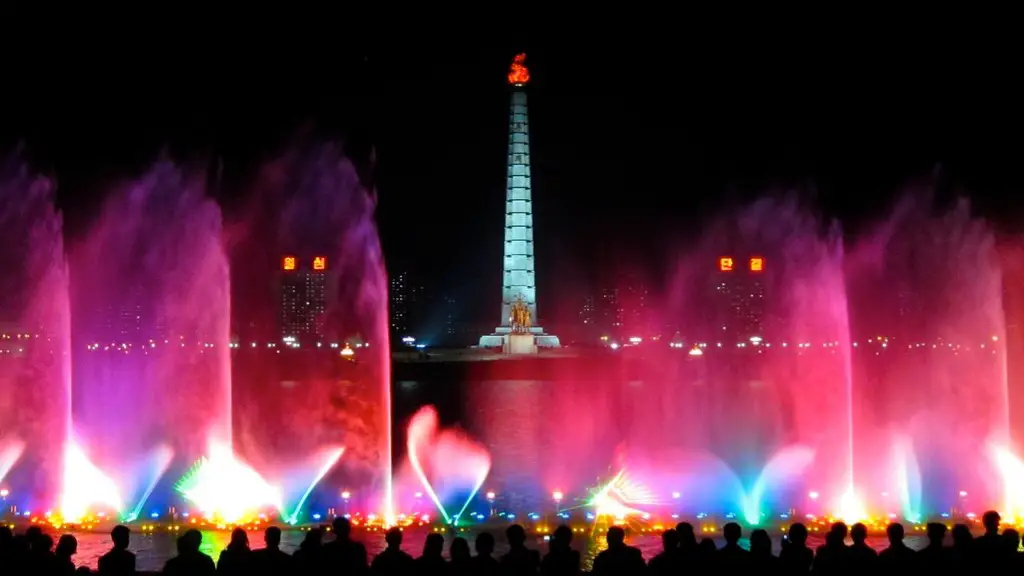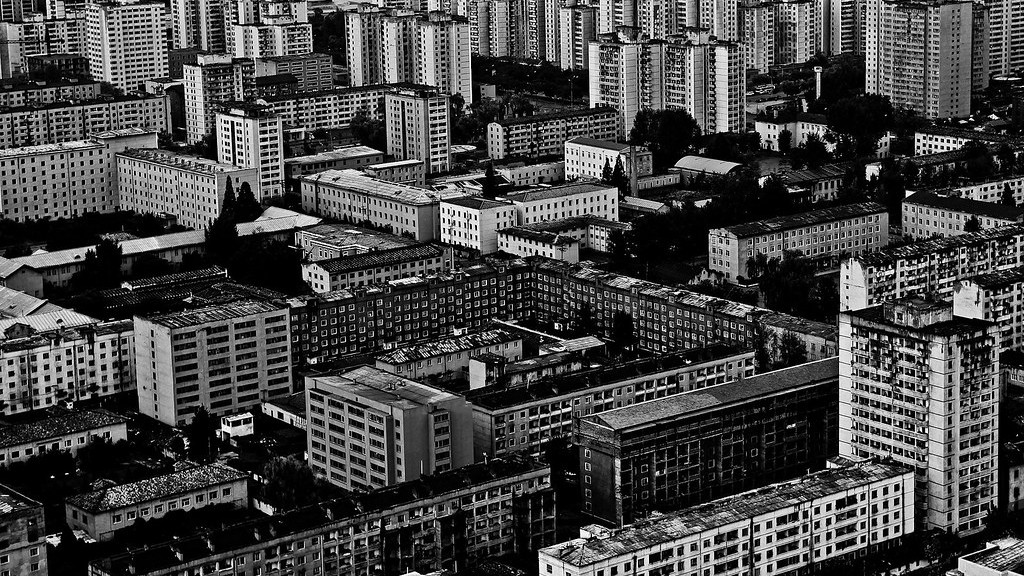Area & Population
South Korea is a small country located in the East Asia region. It is bordered by North Korea to the North, China to the West, and Japan to the East. The country shares a maritime border with Russia and has a total area of 98,480 square kilometers. South Korea has a population of 51.9 million people (2019 estimate) with a population density of 526 people per square kilometer.
North Korea is slightly bigger than South Korea with a total area of 120,540 square kilometers. It is bordered by South Korea to the South, China to the North and Russia to the East. Population wise, North Korea has a population of 25.46 million (2016 estimate) with a population density of 207 people per square kilometer.
GDP
South Korea is one of the world’s fastest growing and most prosperous economies with one of the world’s highest GDP Growth Rates. Its annual GNP was estimated at US$ 1,444 (Billion) in 2018 making it the 8th largest economy in the world. South Korea is also classified as an advanced industrialized economy.
North Korea’s economy is significantly less developed and is largely isolated from global trade systems. As a result, the country is primarily reliant on domestic activities and surviving on handouts, mostly from South Korea and to a lesser extent, China. North Korea’s annual GNP stands at US$32 billion in 2017 placing North Korea’s economy at a fraction of its rival’s economic activity.
Infrastructure & Health Care
South Korea is well equipped with modern infrastructure including an efficient highway system, high-speed railway, communications networks and other public transportation systems. The country also has a highly developed healthcare system that is accessible to citizens in all parts of the country, regardless of class or income.
North Korea lacks much of the modern infrastructure found in South Korea. Its infrastructure is outdated and struggles to keep up with the growing demand. North Korea’s health care system is also far below international standards, with shortages of medical professionals, inadequate healthcare and access to basic medical supplies.
Political & Social System
South Korea is widely considered to be a stable democracy. It maintains a three-tiered government system consisting of the executive, legislative, and judicial branches. South Korea also has a relatively high Human Development Index, meaning that the nation offers its citizens a relatively high quality of life.
North Korea is a totalitarian state ruled by the Kim dynasty, and its leader Kim Jong-Un is widely regarded as an oppressive figure. The country’s social system is highly centralized, with limited freedom and poor access to basic civil liberties.
Diplomacy
South Korea has positive diplomatic relations with majority of the international community, with ties especially strong with the United States, China and Japan. South Korea has been a member of the United Nations since 1991, and a member of several international organizations including the World Trade Organization.
North Korea’s diplomatic relations are mostly limited to its traditional allies such as China and Russia. The North has had very little diplomatic contact with the United States and South Korea. North Korea is an active member of the United Nations, but has been the target of international sanctions.
Military
South Korea is home to a well-trained and backed military force which is considered to be a deterrent to North Korea. South Korea has an active service of 612,644 personnel and works in close alignment with US forces in the region. The country operates its own indigenously produced missiles, fighter jets and warships.
North Korea has one of the world’s largest standing armies with an estimated total of 1.2 million active personnel. The country also has several nuclear weapons and derives its military equipment from its allies China and Russia. North Korea also possesses an estimated 11,000 artillery pieces by the Korean People’s Army.
Diplomatic Efforts
South Korea has made several attempts to ease tensions with its northern neighbor and has regularly involved dialogue as a means of diplomacy. In 2018, South Korea and North Korea declared a formal end to the Korean War and moved to reduce military presence in the demilitarized zone.
In the same year, North and South Korea also moved to cooperate on the issue of denuclearization. North Korea is progressively opening up its economy and embracing modern technology, yet doing so without necessary diplomatic measures in place with the United States.
Cultural Differences
South Korea is largely a secular nation with wide-reaching culture that permeates all aspects of society. South Korea’s culture is heavily influenced by neighboring countries such as China and Japan. There are also significant gaps between the younger and older generations in terms of language and cultural values.
North Korea is a highly isolated society with limited access to foreign media and culture. Despite this, the country has managed to preserve its traditional Confucian culture which was introduced from China in the late 18th century. The country is largely non-religious and does not have any major cultural differences between the generations.
Trade
South Korea is one of the world’s largest exporters, with exports worth of US$ 566.7 billion in 2018. South Korea mainly trades with China, the United States, Japan and Vietnam. South Korea is also an important member of the World Trade Organization (WTO).
North Korea’s economy is largely isolated and only recently opened up to foreign trade. North Korea mainly trades with China, in particular, coal and minerals. In 2018, North Korea’s exports were valued at US$ 5 billion and imports US$ 1.1 billion, illustrating a substantial trade gap with its southern neighbor.


